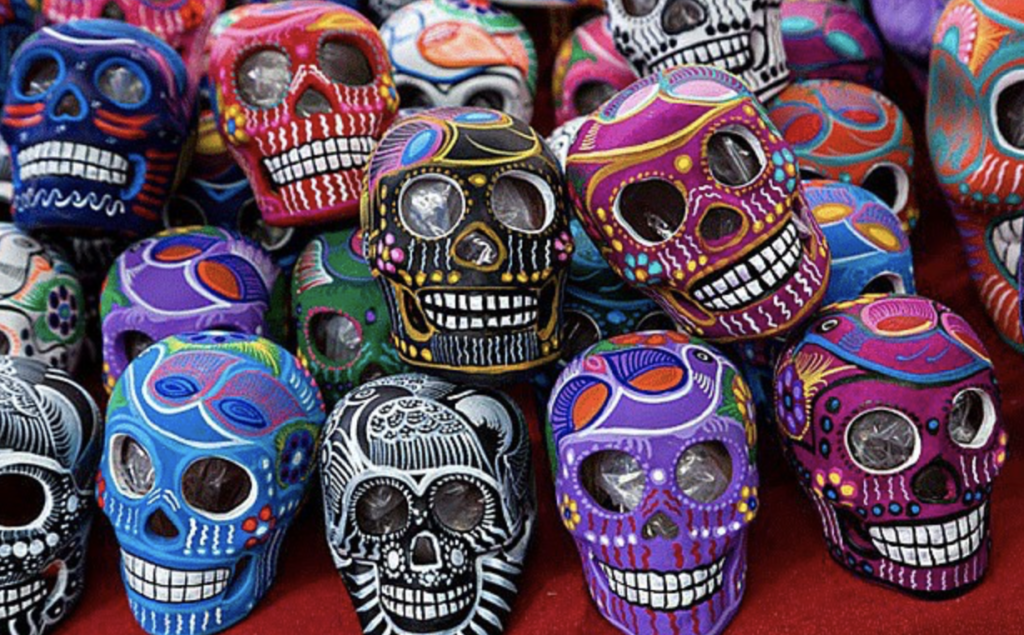Tips to preserve your online identity when you die
Meadhbh Hendrie | Head of Digital
What happens to our online identities when we die? It’s an interesting question, right? Amelia Tate at The Guardian has some ideas. Emergent platforms like Eterni.me are leading the pack in encouraging folks to preserve their dearest memories.
“Eterni.me collects your thoughts, stories, and memories, curates them, and creates an intelligent avatar that looks like you. This avatar will live forever and allow other people in the future to access your memories.”
But what if you get hit by a bus tomorrow? How do these platforms propose to change how we view our digital legacies and take it seriously? It seems like a massive hill to climb.
The article prompted me to think about what happens to our digital identities while we’re alive. If you are unsure about where to start with managing your digital identity now, skip on down to see some of my top tips. Reputation and identity are not mutually exclusive, in my opinion.
The Virtual Town Square
Humans have always had a need to record, narrate and curate their reputations. One of the earliest known examples of social media is a cave painting, the 30,000-year-old Chauvet-Pont-d’Arc cave, which is also a UNESCO World Heritage site. Communication — whatever the medium — creates social capital and validation of skills, knowledge, and status. In the wrong or inexperienced hands, poor communication achieves nothing or, sometimes, creates problems — damaging brands, relationships, and reputations in the process. There have never been so many means of communicating with others than there are now. It is an exciting and daunting time to operate in this space as platforms continually evolve. What’s more, many users don’t have the foggiest idea of how their online activity and content is being used.
Your digital estate
If social media is one of the ways we document and communicate our experience of the world, how will it be possible to capture meaning like an old journal might have done many years ago? What if Anne Frank, or another well-known diarist, posted thousands upon thousands of Tweets or Instagram posts and was particularly bad at labeling content? Anne’s diary is a testament to how powerful the written word can be, especially when the writer is no longer around to tell the tale. Would she be recognised as an influencer at the time of writing — or only posthumously identified as such?
This conundrum is not straightforward in terms of analysis: we can’t write the future purely based on the trending hashtags of the day, although they will feature, I’m sure. It would be a nightmare to crawl back through all the automated posts to your timeline by third-party apps, the mundane exchanges, and so on. I wonder how individual stories and content might be used to shape historical/social narratives?
How do you take a hold of your content yourself? The ultimate answer, of course, is to delete your accounts. It’s possible, but many platforms make this pretty difficult by design. I enjoy using my networks for different purposes and you probably do too. I am not convinced that people have the time or inclination to curate their entire social media histories before handing it over to their nominated digital estate executor. It would feature on a list named To Do (one day, but probably not).
Tips
Meanwhile, we all have a duty to keep tabs on our data security, what we publish, what platforms we publish on, content visibility, security settings… the list goes on. I don’t believe the vast majority of people take this seriously. I was tempted to download all the data Facebook has on me a while ago, around the time Christopher Wylie dished the dirt on Cambridge Analytica, but I didn’t because it is simply vast What would I do with it anyway?
Like many, I am just trying to adopt a more mindful approach to using them both for work and personal uses. Here are a few steps you can take:
1. Find yourself
I don’t mean go on an ayahuasca trip or anything like that. I mean search your name and keywords that might be (or could be) associated with you. To do this, open an incognito or private window and see yourself as others see you online. Do you like what you see? Does it reflect who you are now? Take note of websites/apps you have signed up to.
2. Do some digital security housekeeping
Check if your email address is associated with any data breaches. Use Have I Been Pwnd, developed by security researcher Troy Hunt. To find out if your password has been compromised, you should also check Pwned Passwords. Delete unused, outdated accounts, memberships, and subscriptions. Update passwords frequently. I would recommend using a password manager and to use randomised passwords. Do not use the same password for everything (this is pretty basic stuff). Ensure you have everything two-factor authenticated. There are lots of others but, I use Dashlane. This allows you to hold 50 passwords and, if you go premium, you can have your online activity encrypted via VPN. Google Authenticator app is good too.
If you don’t like your every movement being collected as data, it’s worth updating your browser settings e.g. Chrome. Check out this handy article by Wired magazine’s security expert, David Nield, All the ways Google tracks you — and how to stop it.
3. Embrace your inner editor
A very short note on content: if any content has been published for even a second, that is long enough for someone to see it, screen grab it and use it. Platforms have advanced search capabilities, and this is one of my first ports of call when evaluating clients’ or potential clients’ digital reputations.
The above is just the tip of the iceberg — I hope you find it useful. What makes Years and Years and Charlie Brooker’s Dark Mirror so brilliant is how eerily close the characters’ behaviours are to our own, making the fictional dystopian not-so-distant future seem pretty credible. We need to be a step ahead and take our digital footprint seriously.
This article originally featured on Medium
If you have any questions about how you can protect and curate your brand identity, get in touch, we would love to hear from you.




